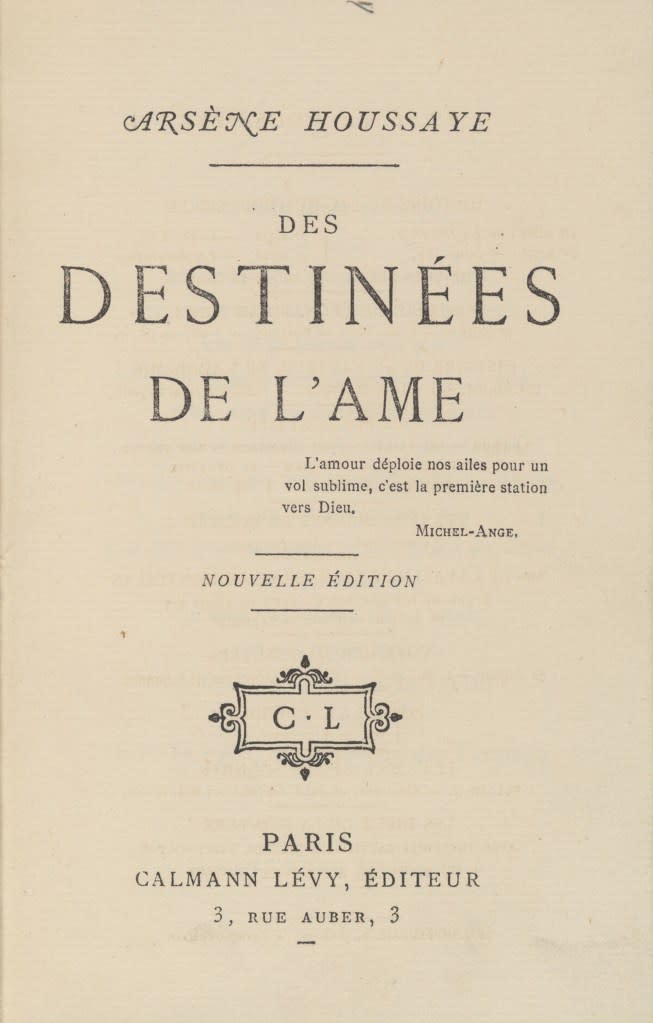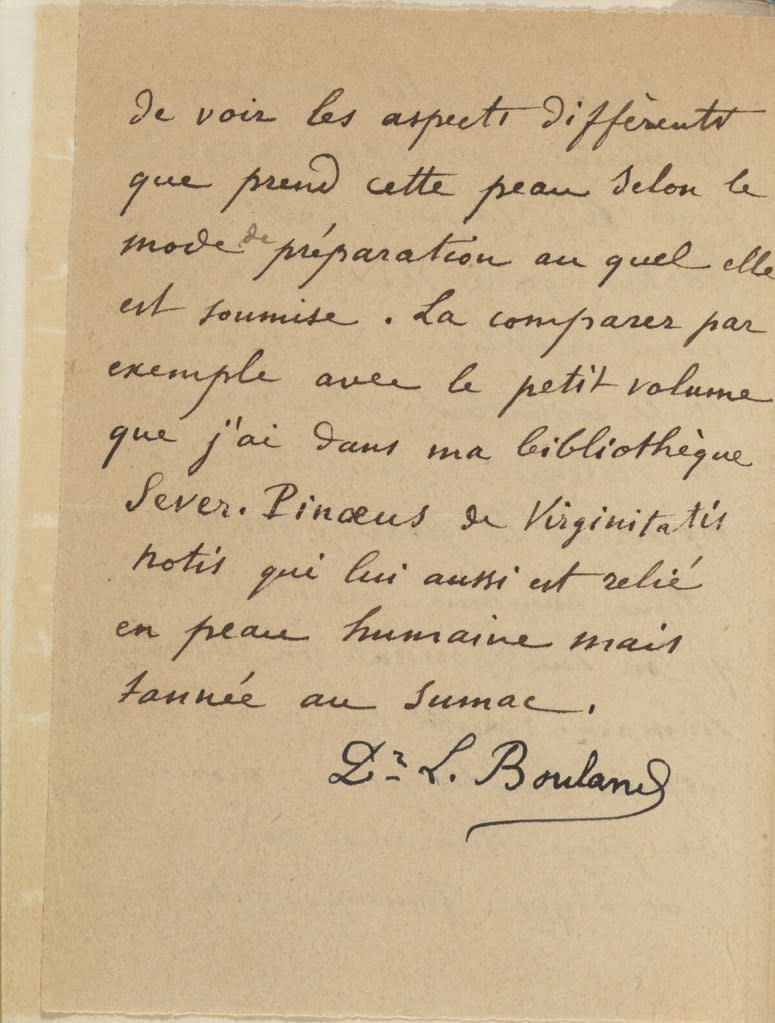Harvard removes cover made of human skin from 1800s book stored in library

Don’t judge a book by its cover — unless, of course, it’s made from human skin.
Harvard University announced it removed a binding made of the skin of a deceased woman from the 19th-century book “Des Destinées de l’Ame,” which they house in their library.
The Ivy League school “concluded that the human remains used in the book’s binding no longer belong in the Harvard Library collections, due to the ethically fraught nature of the book’s origins and subsequent history,” Harvard said in a statement on their website.


The book, written by French novelist Arsène Houssay, translates into “Destinies of the Soul” and has been in the school’s library since 1934.
The book’s first owner, a French doctor named Dr. Ludovic Bouland, bound the book with skin from an anonymous dead patient without her consent.
“The Library is now in the process of conducting additional provenance and biographical research into the book, Bouland, and the anonymous female patient, as well as consulting with appropriate authorities at the University and in France to determine a final respectful disposition of these human remains,” the school’s statement continued.

Until recently, the book was available to people who asked for it for whatever reason.
“Lore suggests that decades ago, students employed to page collections in Houghton’s stacks were hazed by being asked to retrieve the book without being told it included human remains,” the statement revealed.
In a Q&A issued by Harvard, Tom Hyry, an archivist at the school’s Houghton Library, called the decision about the book an “unusual circumstance.”

“The core problem with the volume’s creation was a doctor who didn’t see a whole person in front of him and carried out an odious act of removing a piece of skin from a deceased patient, almost certainly without consent, and used it in a book binding that has been handled by many for more than a century. We believe it’s time the remains be put to rest,” he said.
After 2014 tests confirmed the book was bound with skin, Harvard had a more flippant response, The Guardian reported.
“Good news for fans of anthropodermic bibliopegy, bibliomaniacs and cannibals alike,” the school said at the time.

They have since issued a mea culpa for their “sensationalistic, morbid and humorous tone.”
“We apologize on behalf of Harvard Library for past failures in our stewardship of the book that further objectified and compromised the dignity of the human being at the center,” said Hyry.

